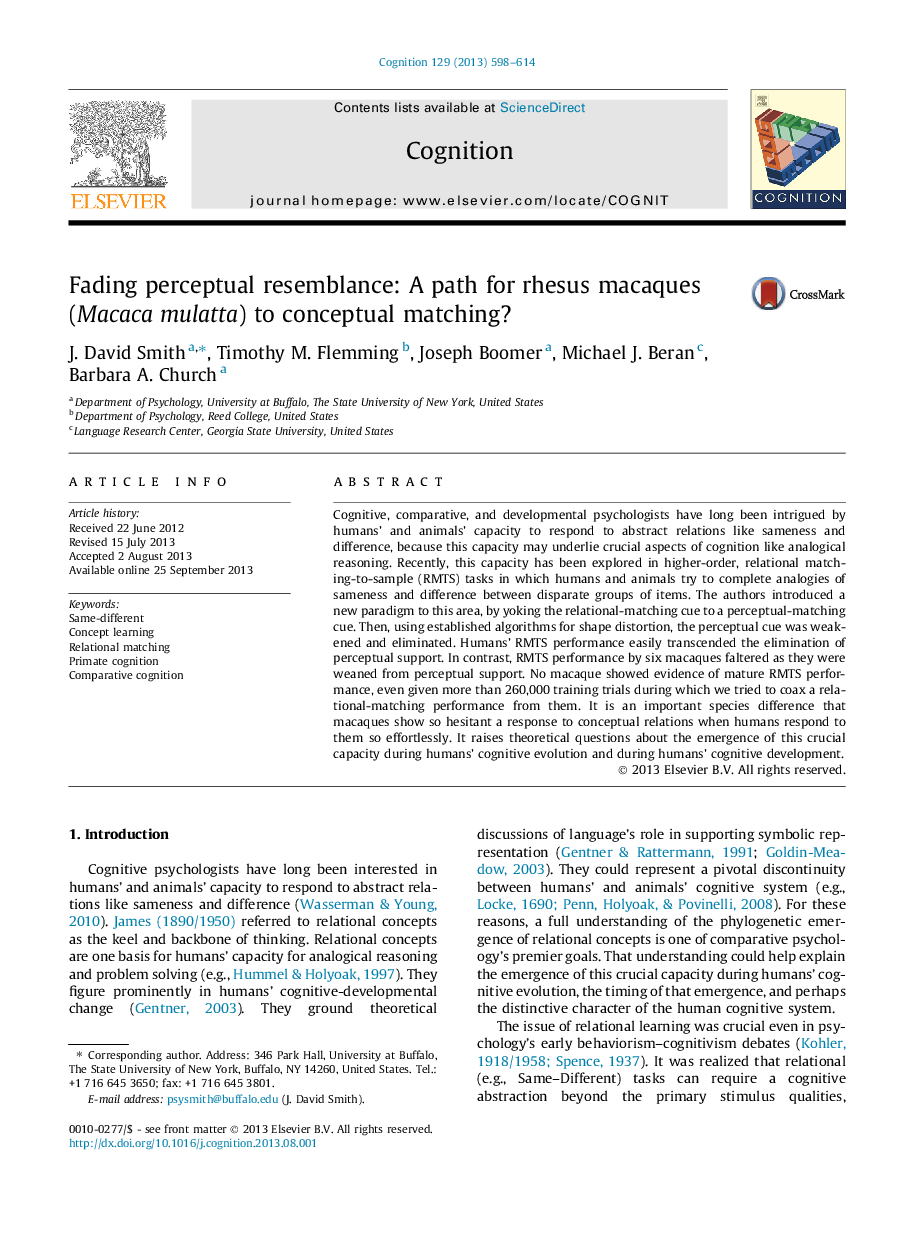| Article ID | Journal | Published Year | Pages | File Type |
|---|---|---|---|---|
| 10457601 | Cognition | 2013 | 17 Pages |
Abstract
Cognitive, comparative, and developmental psychologists have long been intrigued by humans' and animals' capacity to respond to abstract relations like sameness and difference, because this capacity may underlie crucial aspects of cognition like analogical reasoning. Recently, this capacity has been explored in higher-order, relational matching-to-sample (RMTS) tasks in which humans and animals try to complete analogies of sameness and difference between disparate groups of items. The authors introduced a new paradigm to this area, by yoking the relational-matching cue to a perceptual-matching cue. Then, using established algorithms for shape distortion, the perceptual cue was weakened and eliminated. Humans' RMTS performance easily transcended the elimination of perceptual support. In contrast, RMTS performance by six macaques faltered as they were weaned from perceptual support. No macaque showed evidence of mature RMTS performance, even given more than 260,000 training trials during which we tried to coax a relational-matching performance from them. It is an important species difference that macaques show so hesitant a response to conceptual relations when humans respond to them so effortlessly. It raises theoretical questions about the emergence of this crucial capacity during humans' cognitive evolution and during humans' cognitive development.
Related Topics
Life Sciences
Neuroscience
Cognitive Neuroscience
Authors
J. David Smith, Timothy M. Flemming, Joseph Boomer, Michael J. Beran, Barbara A. Church,
